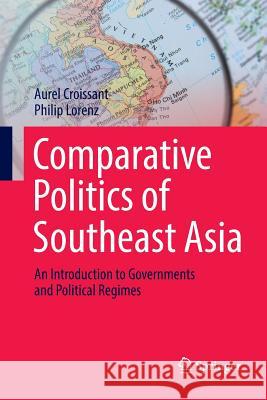Comparative Politics of Southeast Asia: An Introduction to Governments and Political Regimes » książka
topmenu
Comparative Politics of Southeast Asia: An Introduction to Governments and Political Regimes
ISBN-13: 9783319885599 / Angielski / Miękka / 2019 / 442 str.
Kategorie BISAC:
Wydawca:
Springer
Język:
Angielski
ISBN-13:
9783319885599
Rok wydania:
2019
Wydanie:
Softcover Repri
Ilość stron:
442
Waga:
0.64 kg
Wymiary:
23.39 x 15.6 x 2.39
Oprawa:
Miękka
Wolumenów:
01
Dodatkowe informacje:
Wydanie ilustrowane











